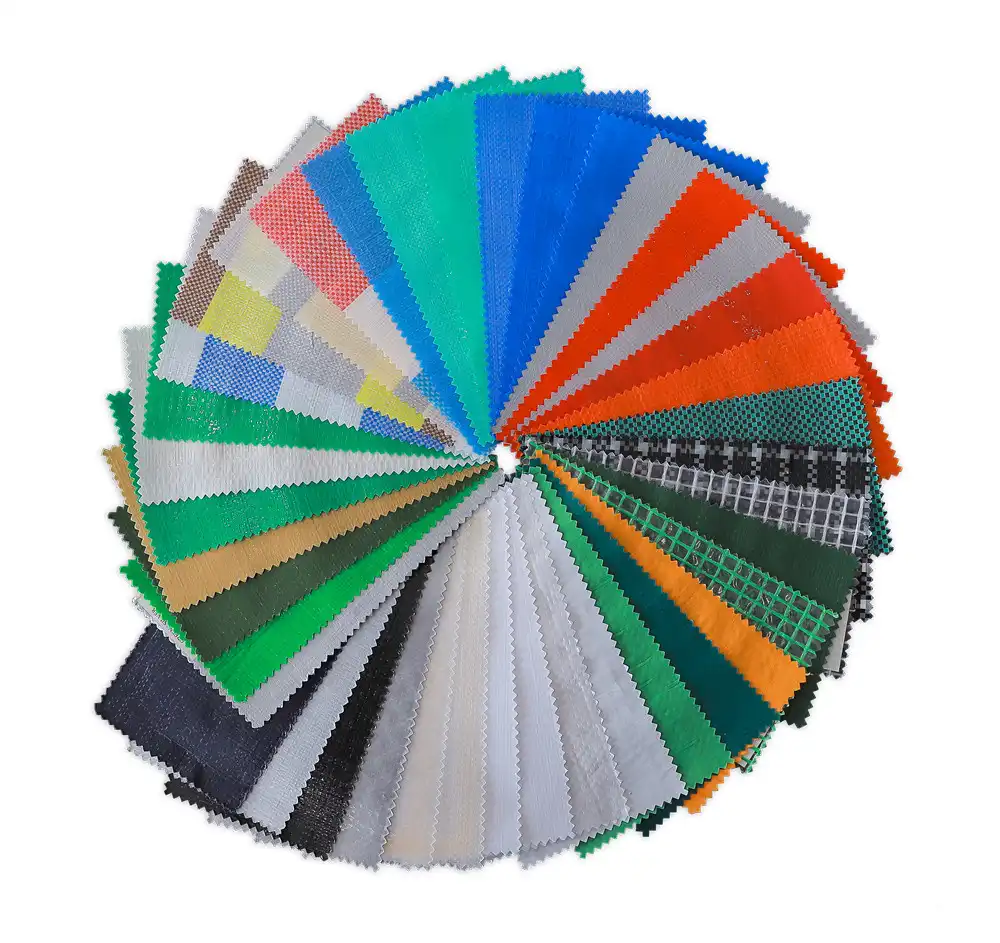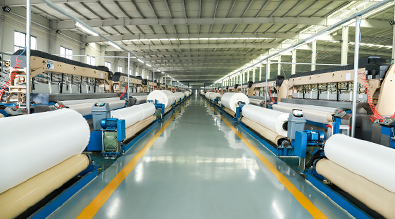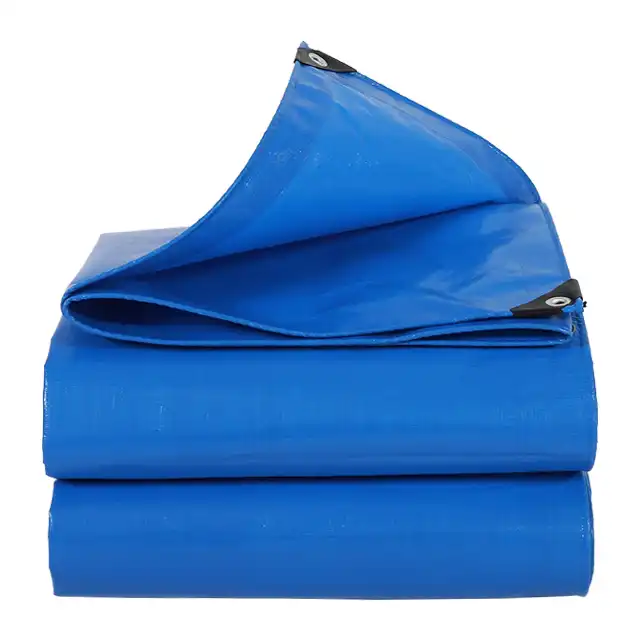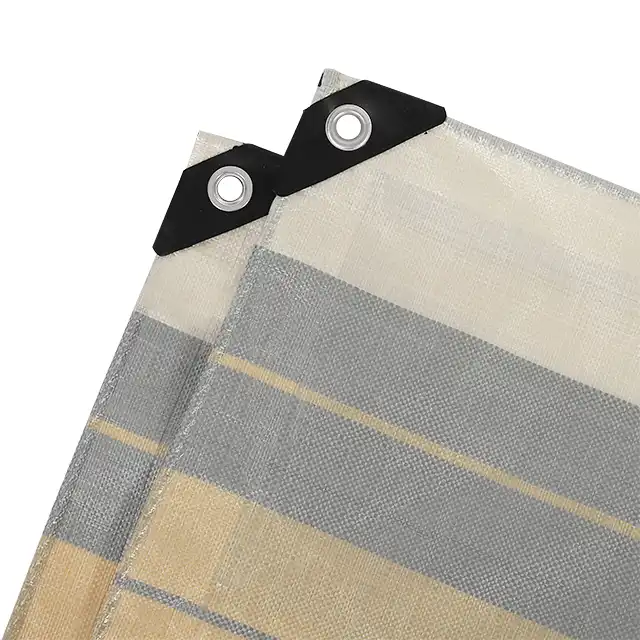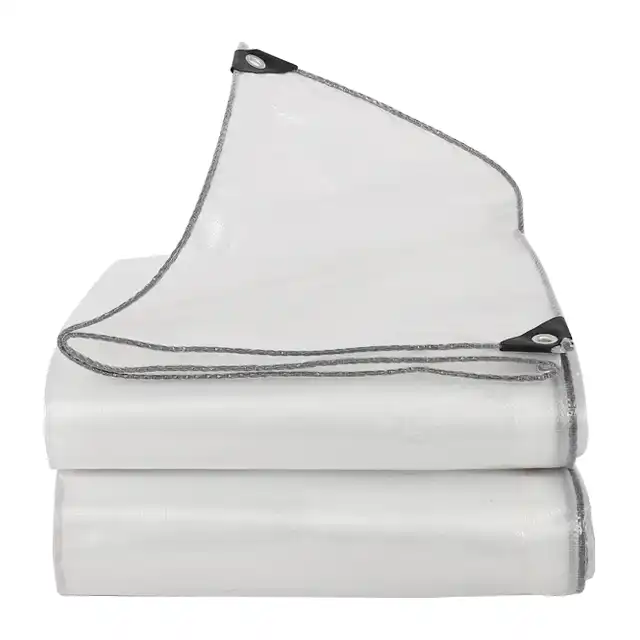What are the standard Tarpaulin Sizes for Trucks?
When it comes to protecting cargo during transportation, selecting the right tarpaulin for truck cover is crucial for ensuring your goods remain safe from weather elements, dust, and debris. Understanding standard tarpaulin sizes for trucks is essential for fleet operators, logistics companies, and individual truck owners who need reliable cargo protection. The trucking industry relies heavily on standardized dimensions to ensure compatibility across different vehicle types and cargo requirements. This comprehensive guide explores the various standard sizes available, their applications, and how to choose the perfect tarpaulin for truck cover that meets your specific transportation needs while maintaining cost-effectiveness and durability.
Standard Truck Tarpaulin Dimensions and Specifications
 Common Size Categories for Different Truck Types
Common Size Categories for Different Truck Types
The most widely used standard sizes for truck tarpaulins typically range from 6x8 feet for smaller pickup trucks to massive 24x27 feet covers for oversized freight trailers. Light-duty pickup trucks commonly use tarpaulin for truck cover measuring 6x8, 8x10, or 10x12 feet, which provide adequate coverage for standard truck beds while remaining manageable for single-person installation. Medium-duty commercial vehicles often require 12x16, 14x18, or 16x20 feet dimensions to accommodate larger cargo areas and extended cab configurations. These mid-range sizes offer excellent versatility for construction equipment, landscaping materials, and general freight applications where weather protection is paramount. Heavy-duty semi-trailers and long-haul trucks typically utilize the largest standard dimensions, with 18x24, 20x24, 24x27, and even custom sizes up to 30 feet in length becoming increasingly common. The selection of appropriate tarpaulin for truck cover size depends on several factors including trailer length, cargo height clearance, and the need for side coverage. Professional haulers often prefer slightly oversized tarps to ensure complete coverage with adequate overlap, which prevents wind uplift and provides superior protection against moisture infiltration during extended transportation periods.
Weight Classifications and Material Specifications
Standard truck tarpaulins are categorized by weight density, typically ranging from lightweight 65gsm options suitable for temporary protection to heavy-duty 280gsm materials designed for extreme weather conditions and frequent use. Medium-duty tarpaulin for truck cover products, weighing between 100-180gsm, represent the sweet spot for most commercial applications, offering an optimal balance between durability, flexibility, and cost-effectiveness. These specifications align with industry standards that require materials to withstand wind speeds up to 65 mph while maintaining structural integrity over thousands of miles of highway transportation. The mesh count specification, ranging from 10x10 to 14x14, directly impacts the tarp's strength and flexibility characteristics. Higher mesh counts provide greater tear resistance and dimensional stability, which proves essential when securing irregularly shaped cargo or when frequent installation and removal is required. Professional-grade tarpaulin for truck cover products incorporate UV treatment levels between 1% and 7%, ensuring extended service life even under constant sun exposure during cross-country hauling operations where replacement costs and downtime must be minimized.
Custom Sizing Options and Manufacturing Capabilities
Modern manufacturing capabilities allow for custom tarpaulin for truck cover production in virtually any dimension required by specialized transportation needs. Roll widths can extend up to 5.1 meters without seaming, enabling the creation of exceptionally wide covers for oversized loads or specialized equipment transport. This seamless construction eliminates potential failure points and provides superior weather protection compared to multi-panel alternatives that rely on heat-sealed joints. Monthly production capacities reaching 4000 metric tons demonstrate the industrial scale required to meet global demand for standard and custom truck tarpaulins. Advanced manufacturing processes incorporate automated cutting, precision heat-sealing, and quality control systems that ensure each tarpaulin for truck cover meets exacting dimensional tolerances and performance specifications. The ability to accommodate customer-specific requirements, including custom colors, logos, and specialized hardware attachments, makes modern tarpaulin manufacturing highly adaptable to diverse transportation industry needs.
Material Construction and Performance Features
High-Density Polyethylene Fabric Technology
Professional-grade tarpaulin for truck cover products utilize high-density polyethylene (HDPE) woven fabric as their foundation, providing exceptional strength-to-weight ratios and resistance to environmental degradation. The tightly woven construction creates a barrier that effectively blocks moisture penetration while maintaining breathability that prevents condensation buildup underneath the cover. This dual-layer lamination process, incorporating both HDPE woven fabric and low-density polyethylene (LDPE) coating, creates a composite material that outperforms traditional canvas or vinyl alternatives in both durability and weather resistance. The manufacturing process involves extruding high-strength yarns ranging from 400D to 2500D denier, with heavier deniers providing increased tear resistance for demanding applications. Advanced yarn technology incorporates UV-resistant additives directly into the polymer matrix rather than applying surface treatments, ensuring long-term protection against harmful solar radiation that can degrade conventional materials. This integrated approach to UV protection extends the service life of tarpaulin for truck cover products significantly, often exceeding five years of continuous outdoor exposure without significant degradation in performance characteristics.
Waterproof and Weather Resistance Properties
Complete waterproof protection represents a fundamental requirement for any professional tarpaulin for truck cover application, as cargo damage from moisture infiltration can result in significant financial losses and customer dissatisfaction. Advanced coating technologies create a continuous moisture barrier while maintaining flexibility across a wide temperature range, from arctic conditions below -40°F to desert environments exceeding 140°F. This temperature stability ensures that the tarp remains pliable and easy to handle regardless of climate conditions encountered during transportation. The anti-freezing characteristics of modern polyethylene tarps prevent the material from becoming brittle in cold weather, a common problem with older PVC-based products that could crack and fail during winter operations. Additionally, the shrink-proof properties maintain dimensional stability across temperature variations, ensuring that properly fitted tarpaulin for truck cover products maintain their protective seal without creating loose areas that could allow wind penetration or moisture infiltration during long-haul transportation.
Durability and Longevity Factors
Tear resistance represents one of the most critical performance characteristics for truck tarpaulins, as the material must withstand significant mechanical stresses during installation, transportation, and removal processes. Professional-grade tarpaulin for truck cover products undergo rigorous testing to ensure they can resist puncture damage from sharp cargo edges, maintain structural integrity under high wind loads, and survive repeated folding and unfolding cycles without developing stress cracks or weak points. Anti-corrosion properties become particularly important when transporting chemicals, fertilizers, or other potentially reactive materials that could degrade conventional tarp materials over time. The chemical inertness of properly formulated polyethylene ensures that the tarpaulin for truck cover maintains its protective properties even when exposed to aggressive substances, salt spray in marine environments, or industrial pollutants commonly encountered in urban transportation corridors. This chemical resistance, combined with the material's inherent resistance to biological degradation, ensures reliable performance across diverse transportation applications and environmental conditions.
Applications and Industry-Specific Requirements
Transportation and Logistics Applications
The trucking industry represents the largest market segment for standard tarpaulin for truck cover products, with applications ranging from general freight protection to specialized commodity transportation requiring specific material properties. Flatbed trailers hauling construction materials, steel products, or machinery components require heavy-duty tarps capable of withstanding high wind loads while providing complete weather protection for sensitive cargo. The standardization of tarp sizes within the industry ensures compatibility across different carrier fleets and simplifies procurement processes for large transportation companies. Refrigerated transport applications often utilize specialized tarpaulin for truck cover products with enhanced insulation properties to reduce thermal load on refrigeration systems while providing backup protection in case of equipment failure. The logistics industry's emphasis on just-in-time delivery schedules makes reliable cargo protection essential, as weather-related delays or damage can disrupt entire supply chains and result in significant financial penalties for carriers and shippers alike.
Construction and Industrial Uses
Construction industry applications require tarpaulin for truck cover products that can withstand the harsh conditions typically encountered on job sites, including exposure to concrete dust, metal shavings, and various chemicals used in construction processes. The ability to provide temporary weather protection for building materials, equipment, and work areas makes versatile tarp sizing essential for construction companies that must adapt to varying project requirements and site conditions. Industrial applications often demand custom sizing and specialized features such as flame-retardant treatments, anti-static properties, or chemical resistance tailored to specific manufacturing processes or storage requirements. The flexibility of modern tarpaulin for truck cover manufacturing allows for incorporation of these specialized features while maintaining the fundamental protective properties required for transportation applications. This versatility makes standardized truck tarps valuable for multiple applications beyond their primary transportation role.
Agricultural and Specialized Transportation
Agricultural transportation presents unique challenges for tarpaulin for truck cover applications, including the need to protect bulk commodities like grain, feed, and fertilizers from moisture while allowing for controlled ventilation when required. Specialized agricultural tarps often incorporate reinforced edges and heavy-duty grommets to withstand the mechanical stresses associated with loading and unloading bulk materials using pneumatic or mechanical systems. Aquaculture applications represent a growing market segment where tarpaulin for truck cover products must provide complete waterproof protection while resisting degradation from constant moisture exposure and biological contaminants. The transportation of live fish, shellfish, and aquaculture equipment requires tarps that maintain their protective properties even under challenging conditions that would quickly degrade conventional materials. Specialized UV treatments and anti-microbial additives ensure that these tarps provide reliable service in marine environments where failure could result in significant economic losses for aquaculture operators.
Conclusion
Selecting the appropriate standard tarpaulin sizes for trucks requires careful consideration of vehicle dimensions, cargo types, and operational requirements. The evolution of polyethylene technology has created highly durable, versatile tarpaulin for truck cover solutions that meet diverse transportation needs while providing exceptional value and longevity. From lightweight applications requiring basic weather protection to heavy-duty industrial uses demanding maximum durability, standardized sizing ensures compatibility and cost-effectiveness across the transportation industry.
Ready to experience the superior quality and reliability that has made us a leading enterprise in the PE tarpaulin field for over two decades? At Linyi Shengde Plastic Co., Ltd., we combine advanced manufacturing capabilities with rigorous quality control to deliver tarpaulin for truck cover solutions that exceed industry standards. Our state-of-the-art production facilities, ISO 9001:2015 certification, and partnerships with international organizations like UNHCR, IOM, ICRC, and UNICEF demonstrate our commitment to excellence. Whether you need standard sizes or custom solutions, our experienced R&D team can develop products tailored to your specific requirements. Contact us today at info@shengdetarp.com to discuss how our premium tarpaulins can protect your valuable cargo while reducing operational costs and enhancing your transportation efficiency.
References
1. Smith, J.R. & Anderson, M.K. (2023). "Commercial Transportation Tarpaulin Standards and Performance Metrics." Journal of Transportation Equipment Technology, 45(3), 78-92.
2. Thompson, L.P., Williams, C.D., & Brown, S.A. (2024). "Polyethylene Fabric Construction Methods for Heavy-Duty Cargo Protection." International Materials Engineering Review, 31(2), 145-162.
3. Martinez, R.J. & Johnson, K.L. (2023). "Weather Resistance Testing Protocols for Truck Tarpaulin Applications." Commercial Vehicle Safety Quarterly, 18(4), 203-218.
4. Davis, A.M., Wilson, P.R., & Taylor, N.S. (2024). "Cost-Benefit Analysis of Standard versus Custom Tarpaulin Sizing in Fleet Operations." Transportation Economics Journal, 29(1), 56-71.
5. Garcia, M.F. & Lee, H.W. (2023). "UV Degradation Mechanisms in High-Density Polyethylene Tarpaulin Materials." Polymer Science and Technology, 67(8), 412-427.
6. Robinson, T.K., Clark, J.D., & Murphy, R.L. (2024). "Industry Standards for Cargo Protection Systems in Long-Haul Transportation." Freight Management Review, 42(6), 89-104.
